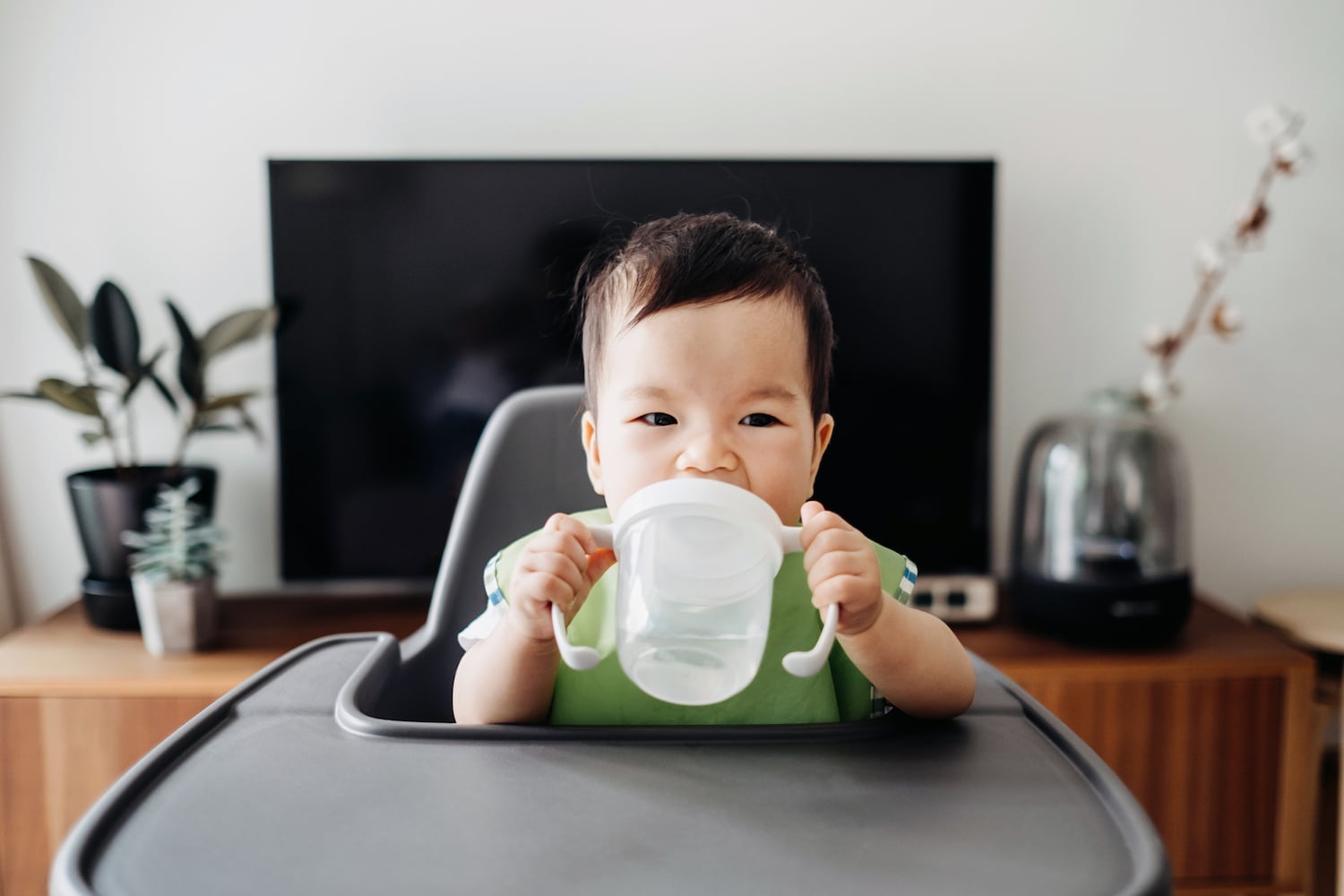In this article
- What should I consider before having a second baby?
- When is the best time to have baby #2, according to doctors?
- How do you know if you’re emotionally ready for a second baby?
- How will a second baby impact your career and finances?
- What is the best age gap between siblings?
- Ultimately, optimal timing for baby #2 is personal
There’s no simple answer when you’re deciding when to have baby number two — and your feelings may be at odds. On the one hand, you may feel ready to add to your family, but the thought of starting over with sleepless nights and diapers may also feel completely overwhelming.
That’s normal! While you may never feel like this is the perfect time to have another child (or it may not pan out how you planned), there are a few things to consider — with one of the biggest being how you and your partner, if you have one, are feeling as parents.
“A crucial, yet often overlooked, perspective when considering baby number two is mental health,” says Shainna Ali, a licensed mental health counselor and the director of the Mental Wellness Practice in Orlando, Florida. “How are you truly doing as parents? What does your support system look like and how is your general well-being?”
If you’re faring well, it may be a good time to expand; if you’re burnt out, overwhelmed and financially strapped, waiting may be the better choice. From what to consider before trying to the pros and cons of small and wide age gaps, here’s what to take into account when planning for another baby.
Key takeaways
- Experts emphasize that the best time to have a second baby depends on a parent’s physical recovery, mental health and practical readiness, like financial standing, rather than a perfect age gap between siblings — which, ultimately, doesn’t exist!
- Doctors generally recommend waiting 18–24 months between births for optimal health, while also considering emotional support and work flexibility. On the flip side, waiting too long between births may pose health risks to mom.
- Ultimately, the “right” timing is deeply personal — what matters most is feeling supported, balanced, and prepared to expand your family. By taking stock of your family situation, the right time for another baby should present itself organically.
What should I consider before having a second baby?
Each family has their own set of unique circumstances to contend with and the decision to expand is “rarely just logistical,” notes Caroline Geraghty, a communication strategist, parent coach and mom of three in New Jersey.
“It’s emotional, relational and deeply personal,” she adds. “When working with families, I always encourage them to consider capacity before calendar.”
As a first step, Geraghty recommends parents ask themselves the following questions before adding to their family:
- What kind of support system do we have?
- What might we need to expand?
- Are we feeling grounded as individuals and connected as parents?
- Do we have space — mentally, emotionally, financially and physically — for another chapter?
How you answer these questions, Geraghty notes, will give you insight as to whether or not it’s the ideal time.
“My husband and I waited three years before trying for another baby,” notes Cara Alzugaray, a mom of two in Forest Hills, New York. “I needed time to get my bearings, and recalibrate our finances after such a big portion of our paychecks went to daycare.”
When is the best time to have baby #2, according to doctors?
“Many experts recommend at least 18–24 months between births to allow the body to fully recover,” says Irin Rubin, author of The MamaZen Parenting Method and founder of MamaZen app. “And for some women, true hormonal and physical recovery can take years, especially after a challenging delivery or C-section.”
There are physical issues to consider, as well. Research has found that when women 35 and older get pregnant less than 18 months after a prior pregnancy, there are increased risks to the baby, including the possibility of preterm birth and low birth weight.
Another study found that when women wait 59 months or longer to have another child, there’s an increased risk of preeclampsia for mom.
“Maternal mental health should be prioritized as much as a serious physical condition when considering expanding one’s family.”
— Shainna Ali, licensed mental health counselor
How do you know if you’re emotionally ready for a second baby?
When it comes to timing, it’s also imperative parents — moms in particular — consider their postpartum mental health, notes Ali.
“Statistically, mothers who experienced mental health concerns after their first baby are more likely to re-experience issues,” she says. “This doesn’t mean a mother who lived with postpartum depression shouldn’t consider another child; it means proactive symptom management and prevention are essential when timing a second child.”
In other words:
- Will you have support available?
- Will you have ample time off of work?
- Do you have a mental health professional that you trust?
“Maternal mental health,” Ali notes, “should be prioritized as much as a serious physical condition when considering expanding one’s family.”
How to make sure you and your partner are on the same page
Something else to keep in mind: Having another baby is a joint decision (if you have a partner), so making sure you’re on the same page as your partner is important.
“My husband and I were shell shocked after our first baby, so even after things started to calm down, I knew he was nowhere near ready to have a conversation about having another,” says Heather T., a mom of two in Flemington, New Jersey. “A few months after our son’s third birthday, though, I asked him about adding on and he was ready to talk about things.”
“I always thought I’d have kids close in age, but that’s not how it worked out for us — and it’s for the best,” she adds.
“Whether your children are two years apart or nearly a decade, they’ll benefit more from parents who are resourced, emotionally connected and surrounded by community.”
— Caroline Geraghty, communication strategist and parent coach
How will a second baby impact your career and finances?
In addition to gauging whether you feel emotionally and mentally ready, Geraghty notes that it’s important to take inventory of some of the more practical aspects of your situation, as well.
Financial considerations
Kids are expensive, so before saying yes to baby number two, take a good, hard look at your finances and consider what another child may cost from every angle.
“Price out childcare for multiple kids, look at how your family might use hand-me-downs or shared spaces and plan for transitional costs, like a bigger car or part-time sitter,” Geraghty suggests.
She also recommends doing a “mock month,” where you live as if you’re already paying for the extra childcare or reduced income for one month. “This,” she says, “will give you a more practical view of your current budget, where you have more flexibility and how it feels.”
Career timing
Along with nesting and baby prep, don’t forget to map out your parental leave and re-entry plan at work, notes Geraghty.
“There’s no ‘perfect’ window so instead focus on creating open dialogue with your employer and partner about flexibility, coverage and boundaries, which are the real currency of working parenthood,” she says. “Don’t time your family around work milestones, build a support system that lets you grow both.”
What is the best age gap between siblings?
As the case is with everything, there are benefits and drawbacks to having kids close in age. While you may have a vision of what your family will look like, Geraghty reminds parents that everyone wins when mom and/or dad are in a good place.
“Whether your children are two years apart or nearly a decade, they’ll benefit more from parents who are resourced, emotionally connected and surrounded by community,” she says.
Here’s what to think about when planning.
Pros of a close age gap
- Strong sibling bond. Both Geraghy and Irin Rubin, author of The MamaZen Parenting Method and founder of MamaZen app, note that it’s easy for siblings to connect when they’re so close in age. “Siblings close in age often develop a strong bond and share similar routines, toys and activities,” notes Rubin. “They’re built-in playmates.”
- Similar schedules. For parents, having kids close in age can make keeping routines easier, says Rubin. “Think naps, diaper changes, potty training, bed time routines,” she notes.
Cons of a close age gap
- It’s physically demanding.
- It’s mentally and emotionally demanding. This is particularly true, Rubin notes, without adequate support or rest. “Overwhelm can quickly turn into burnout,” she says. “The mental load was real and the first few years required every ounce of patience and teamwork,” Geraghty adds. “I often felt like there was never enough of me and my capacity was stretched in ways I wasn’t fully prepared for.”
“What matters most is not timing, but readiness — feeling grounded, supported and capable of giving from a place of calm rather than depletion.”
— Irin Rubin, parenting author and app creator
Pros of a big age gap
- Older kids will help. “The older child is usually more independent and may even enjoy helping with the baby, creating a nurturing sibling dynamic,” Rubin says. (And speaking from experience, you’ve got a built-in babysitter down the line!)
- More individual attention. Parents can devote more focused attention to each child’s developmental stage and needs, particularly in those crucial early years, Rubin notes.
- Perspective. You’re older and wiser. “My first and middle are two years apart,” Geraghty says. “Then came our third, six/eight years later and in many ways it felt like starting over, but with a more grounded, more gentle perspective. We also had more emotional bandwidth and established rhythms as a family.”
Cons of a big age gap
- It can be hard on your first. When a child is used to being the only one for a while, they may struggle with the shift in attention, notes Rubin.
- Different interests and developmental stages. The end of the world? Of course not, but “as trends and technology change, it can make it harder for siblings to connect closely as they grow,” says Rubin. (A.k.a. Don’t expect your oldest to drop their Snapchat conversation to build Legos with their much younger sibling.)
- You’re older… and more tired. It can be rough to go back to the sleepless nights and child care logistics when you have an older child,” notes Geraghty, who adds: “juggling activity schedules with naptimes and preteen emotions with toddler energy is hard.”
Ultimately, optimal timing for baby #2 is personal
You can plan until you’re blue in the face and things may not pan out as you expect — and that’s A-OK, because ultimately, there’s no right way to create your family.
“At the end of the day, there’s no perfect age gap; you should only consider what works best for your family’s needs, health and emotional balance,” says Rubin. “What matters most is not timing, but readiness — feeling grounded, supported and capable of giving from a place of calm rather than depletion.”





